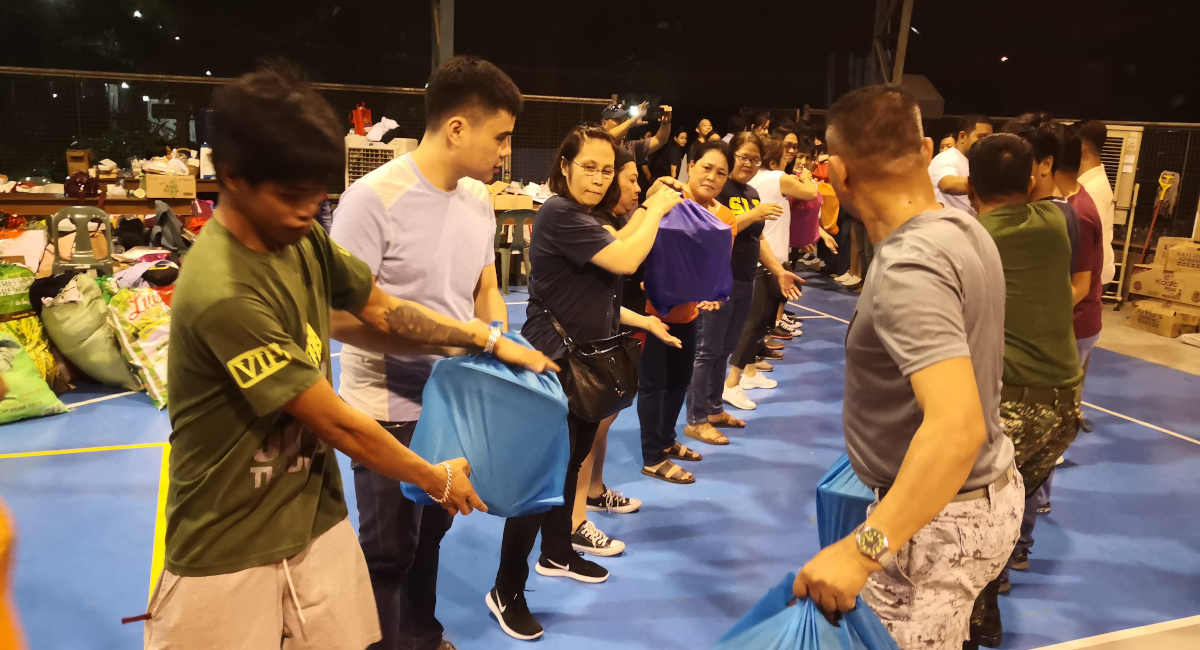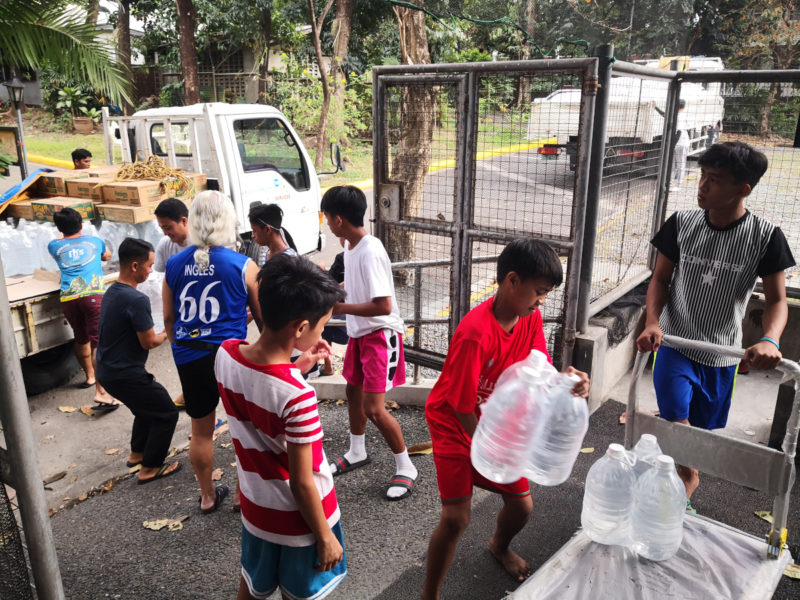 The heightened activity of Taal Volcano in the Province of Batangas, Philippines on January 12 prompted townspeople surrounding the area to flee for their lives. The volcano’s eventual steam-driven eruption with ash caught many people by surprise as Taal’s last eruption occurred more than 40 years ago. Even residents of the nation’s capital, Manila, about a hundred kilometres away, were not spared from the ash fall that reached the city and neighbouring provinces within hours.
The heightened activity of Taal Volcano in the Province of Batangas, Philippines on January 12 prompted townspeople surrounding the area to flee for their lives. The volcano’s eventual steam-driven eruption with ash caught many people by surprise as Taal’s last eruption occurred more than 40 years ago. Even residents of the nation’s capital, Manila, about a hundred kilometres away, were not spared from the ash fall that reached the city and neighbouring provinces within hours.
Reports from the Philippine Institute of Volcanology and Seismology say that fluctuating volcanic activities from Taal may be observed for as long as seven months. Unlike in the case of typhoons, it is improbable to ascertain a definite timeline as to when people can go back home safely during a volcanic eruption. The hundreds of thousands stranded in evacuation centres and foster homes now have to watch and wait before they can return to their normal lives. It is a disaster beyond prediction and control.
What was expected though, as witnessed by Scholastic Ed Colmenares SJ of the Philippine Jesuit socio-political apostolate, Simbahang Lingkod ng Bayan, was a surge in solidarity and help coming from all fronts. He and representatives from other member institutions, namely, Tanging Yaman Foundation , the Ateneo Disaster Response and Management Team, and Manila Observatory, partnered with the Batangas-based Lipa Archdiocesan Social Action Commission (LASAC), whose socio-pastoral ministry covers the region affected by the eruption. Faithful to the spirit of subsidiarity, LASAC also leads the Catholic Church’s relief effort on site and helps the group in Ateneo de Manila University identify and direct assistance to least served communities in Batangas.
The relief event at the Richie Fernando Covered Courts in the Ateneo de Manila was a familiar sight for Scholastic Ed, who had worked with roughly the same people during relief operations for survivors of Typhoons Ondoy (Ketsana) in 2009 and Yolanda (Haiyan) in 2013. This time he noted more volunteers – students, residents from nearby communities, concerned citizens – than in the past relief operations. Other Jesuit institutions including Ateneo de Davao University, Ateneo de Zamboanga University, and Xavier University in Mindanao, Ateneo de Naga University in Bicol, and Jesuit-run schools in Metro Manila, Cebu, and Iloilo also pledged support. Nearby public and private schools sent volunteers and donations. Even the Philippine Navy joined in, organising vehicles to transport repacked goods to LASAC.

Donors from various parts of the national capital flocked the Richie Fernando Covered Courts bringing cash and goods, such as food, water, toiletries, hygiene kits, masks, and medicines. Other people helped by linking the group with potential donors and suppliers. The volunteers made sure that the goods were properly repacked and loaded in the vehicles, and orderly received by their brothers and sisters in need.
One such volunteer was “Coach” Eric Ingles, an Ateneo de Manila graduate who brought with him young volunteers. A few years ago, he invited these children and young people from a nearby underprivileged neighbourhood to be part of the “Blue Guards”, a football club he helped to form back in the ‘60s.
Like Scholastic Ed, Coach Eric is also used to the generosity of people helping out in off-site relief operations. “Batangas is too far. Everybody wants to help… [But] we don’t have to go that far… The help here is equivalent to the help there.” He related the generous act his young volunteers did when they first came to the relief operations in their blue jerseys. Some of them told him they would like to go home for a short while. When they returned to the relief site, every one of them had brought their own share of donations. For Coach Eric, this shows that people, no matter where they come from, are equally capable of sharing their blessings.
With the overwhelming support of donors and volunteers, the relief operations yielded about 3,000 repacked goods – triple the initial target – besides the communal goods such as sacks of rice that were distributed to the evacuation centres. The last batch of goods will be sent to areas with high demand but currently on lockdown – Alitagtag, Cuenca, Taal, and Santa Teresita.
The crisis brought about by the eruption of the Taal Volcano might still go on for months, but if this relief operation is any indication, the people’s sense of solidarity in the face of disaster remains strong.
 Xavier Roel Alvaran is the Communications Officer of Simbahang Lingkod ng Bayan, the social justice arm of the Philippine Jesuits.
Xavier Roel Alvaran is the Communications Officer of Simbahang Lingkod ng Bayan, the social justice arm of the Philippine Jesuits.

